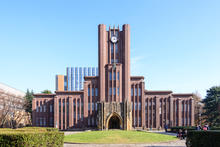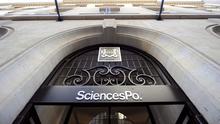Global Partnerships


Partnership is at the heart of Princeton’s international activity. Through a global network of relationships, of varying degrees of formality, these affiliations serve to generate the collaboration, reciprocity and exchange that outstanding international research and teaching requires. Below are descriptions of the kinds of formal agreements between Princeton and its foreign partner universities, but Princeton faculty and staff also regularly work with NGOs, local employers (across all sectors), indigenous community projects, third-party providers and beyond. The critically important work of these partnerships is highlighted across this site and those of institutionally adjacent offices.
Princeton’s formal global partnerships are especially important as pillars of the University’s internationalization strategy. Partnerships with universities abroad, often initiated by faculty members, encourage and support international research and teaching collaborations, undergraduate and graduate exchanges and staff and administrative exchanges. These durable ties create the capacity for faculty and students to enhance and sustain academic cooperation by moving across borders with the institutional support of their home and host universities.
Princeton has agreements with strategic partners at the institutional level to facilitate increased mobility of faculty and students, as well as transnational research and teaching collaboration.

Princeton University established a strategic partnership with Humboldt University in Berlin in 2012. The Princeton-Humboldt Strategic Partnership supports departments, programs and centers seeking resources to sustain ongoing transnational research, teaching collaborations and staff and student exchanges. The Princeton-Humboldt partnership has flourished for more than a decade and has co-funded more than 30 faculty-driven research collaborations in disciplines as diverse as classics, electrical engineering, molecular biology, neuroscience, history, philosophy and international relations. Princeton has also established a dual-Ph.D. program with Humboldt as well as graduate-student exchanges in several departments and a regular number of visiting scholars from Humboldt engaged in Princeton’s teaching and research enterprise. In addition to the faculty-research collaborations and exchanges, Princeton hosted the University's fourth Fung Forum at Humboldt University in Berlin. Based on the success of the institutional collaborations and flow of scholars, students and ideas between the two institutions, the strategic partnership agreement with Humboldt was renewed in fall 2023.
About Humboldt:
Humboldt-Universität zu Berlin is Berlin's oldest university and — as one of 11 German universities that won the German Universities Excellence Initiative — one of the most respected universities worldwide. Humboldt-Universität is a large public university, and yet shares many of the characteristics of Princeton. A reputation for excellent scholarship (Humboldt-Universität has educated 29 Nobel prize winners), a profound commitment to arts and humanities, a faculty-driven approach and a department-driven, decentralized organization. The University has approximately 35,000 undergraduates, 11,000 master's degree students and 6,000 doctoral students. Berlin is a wonderful, cosmopolitan city with an incredible history, Humboldt-Universität is an important intellectual hub for Princeton scholars and through our partnership with Humboldt, it is now the site of one of dynamic and important international endeavors of this University.
Recent events and initiatives supported by the partnership include:
- Princeton and the University of Humboldt in Berlin Renew Partnership: Humboldt University President Julia von Blumenthal traveled to Princeton in October 2023 to meet with Princeton President Christopher L. Eisgruber to renew the strategic partnership.
- A Princeton-Humboldt Project Unites U.S. and German Students to Examine the Crisis of Democracy: CONSTRESS, a Princeton-Humboldt partnership initiative based in PIIRS, examines the rise in authoritarianism in Europe as well as democracies in crisis across the globe.
Ongoing projects:
Cooperation and Collective Cognition Network (CoCCoN)
Princeton PIs:
Alin Coman, associate professor of psychology
CONSTRESS 3.0
Princeton PIs:
Classics and the Contemporary Imagination: Ekphrasis
Princeton PIs:
Andrew Feldherr, The Giger Professor of Latin and Professor of Classics
Peter Kelly, Assistant Professor of Classics
Practical Normativity: Current Issues and Perspectives
Princeton PI:
Sarah McGrath, Professor of Philosophy
Places of Slavic Cultures – Slavic Cultures Out of Place
Princeton PI:
Ilya Vinitsky, Professor of Slavic Languages and Literatures
Materials and Materialities: Critical Conversations Across the Humanities and Sciences
Princeton PIs:
Spyros Papapetros, Associate Professor, History and Theory of Architecture
Brigid Doherty, Associate Professor of German and Art and Archaeology
Learn more about the Materials and Materialities' collaboration with the Matters of Activity

The Princeton University-University of Tokyo Strategic Partnership was established in 2013 with the goal of fostering long-term connections between the two universities. To date, this has been accomplished through support of collaborative mentoring and training across a wide range of disciplines. Recent projects involve Princeton faculty and students in the departments of Anthropology, Astrophysics, Chemistry, Civil and Environmental Engineering, East Asian Studies, Ecology & Evolutionary Biology, Electrical Engineering, History, Sociology, the Princeton Plasma Physics Laboratory, and the School of Architecture. Since 2013, the partnership has made 27 project awards. The partnership was renewed in January 2023 for a third five-year period.
In 2020, administration of the partnership moved from the Office of the Provost to the Princeton Institute for International and Regional Studies (PIIRS). At the University of Tokyo, the partnership is housed within the International Projects Promotion Group. At each university, there is a faculty director who is supported by an interdisciplinary steering committee and administrative staff. Committee members are: Jim Raymo, Sociology, Faculty Director (Princeton); Sheldon Garon, History, (Princeton); and Michael Strauss, Astrophysics (Princeton); Jin Sato (Institute of Advanced Studies on Asia); Yujin Yaguchi (School of Interdisciplinary Studies); Naoki Yoshida (Physics); and Hiroe Ishihara (Sustainable Society Design Center).
Recent events and initiatives supported by the Strategic Partnership include:
- Princeton Day at UTokyo: An event to celebrate the 10th anniversary of The Princeton-University of Tokyo Strategic Partnership.
- Princeton-UTokyo Spring Program on Sustainability: A week-long program for Princeton and University of Tokyo undergraduate students at the UTokyo NYC office and Princeton campus.
- Collaborative research meeting on transnational project analyzing policing and democracy: University of Tokyo professor visited Princeton to lead classes for students enrolled in “Policing and Militarization Today.”
- Resumption of in-person collaboration in electrical and computer engineering: University of Tokyo faculty and students visited Princeton to meet with Princeton engineering and computer science faculty and to discuss a 2023 symposium workshop in Tokyo.
- Tokyo-Princeton Postdoctoral Fellowship for Research on Contemporary Japan: The Global Japan Lab and Tokyo College recently hired their first joint post-doctoral scholar to participate in a unique program to support early-career research on contemporary Japan from a global perspective.
Princeton University supports multidimensional partnerships with institutions worldwide to help foster the flow of ideas across borders. Princeton has signed agreements with a number of partners to facilitate increased mobility of faculty and students, as well as transnational research and teaching collaboration. Faculty in departments, schools, institutes and programs are invited to submit proposals that promote collaboration with the following institutions.

Princeton University established a research partnership with the University of Geneva in 2013, and the two schools have jointly awarded 12 grants across disciplines. Over the years, regular delegation visits and exchange of scholars between the two institutions have been common across disciplines.
About the University of Geneva
Founded in 1559, the University of Geneva (UNIGE) is a public-research university and the third-largest university in Switzerland. UNIGE has academic-research and development programs in various fields. Similar to Princeton, UNIGE actively pursues teaching, research and community service as its primary objectives. It has a student population of approximately 17,000, of which around 12,000 are undergraduate students, 1,000 are master’s students and more than 2,000 are Ph.D. students. It is a highly international university with foreign nationals comprising almost 40% of its student population. Geneva itself is a highly international city, providing the university with natural connections to many of the world’s transnational and nonprofit organizations.
Learn more about the University of Geneva – Princeton research partnership

Princeton University established a research partnership with Sciences Po in 2014 and the two have since jointly awarded several grants in social sciences and humanities. There has been a graduate-exchange program between both institutions since the partnership’s initiation. There have been regular delegation visits, exchange of scholars between the institutions and continuing interest in interdisciplinary research collaborations among scholars.
About Sciences Po
Founded in 1872, Sciences Po is the top university in France and internationally renowned in political science, sociology, law, history, economics, and international relations. Sciences Po has approximately 13,000 students, 47% of whom are international. Its research community includes more than 220 members and 350 Ph.D. candidates covering a wide range of topics including education, democracies, urban development, globalization and public health. Sciences Po’s alumni include many notable public figures including several French presidents. Sciences Po places research development at the heart of its strategy in the national and international contexts. Most of Sciences Po’s researchers and professors have international experience and a third of them are foreign nationals.
The University places a strong emphasis on the internationalization of the school’s curriculum and student body, establishing a special admission process for underprivileged applicants, and expanding the school's presence by establishing new campuses outside Paris. Sciences Po currently has seven campuses: Dijon, Le Havre, Menton, Nancy, Paris, Poitiers, and Reims.
Learn more about the Sciences Po– Princeton research partnership
